Benefits of Sales Training
At Dynamo Selling, we firmly believe that transformative sales training isn’t just about improving sales techniques; it’s about revolutionising your entire sales approach. This article explores the dynamic benefits of comprehensive sales training, showcasing how it can amplify your sales team’s effectiveness, enhance customer relationships, and significantly boost your business’s bottom line.
Key Takeaways:
- Skill Enhancement: Sales training polishes crucial selling skills for better customer engagement.
- Efficiency Boost: It streamlines the sales process, enhancing productivity.
- h2er Connections: Training fosters h2er, more enduring customer relationships.
Sales training programmes are essential in equipping your team with the tools they need to succeed. By focusing on key areas such as negotiation skills, customer understanding, and product knowledge, sales training helps build a more confident and competent sales force. Let’s delve into the multifaceted benefits that sales training can offer.
Enhanced Communication Skills
Effective communication is the cornerstone of any successful sales interaction. Sales training programmes emphasise the development of listening and questioning skills, enabling sales professionals to better understand and meet their customers’ needs.
Increased Sales Efficiency
Through targeted training, sales teams learn to identify and pursue leads that are more likely to convert, thus optimising the sales process and improving conversion rates.
Improved Customer Relationships
Sales training teaches salespeople how to build and maintain h2 relationships with clients. This not only helps in retaining customers but also in securing new business through referrals and repeat sales.
Advanced Negotiation Techniques
Empowering sales teams with advanced negotiation skills can lead to better deals, not just in terms of closing sales but also in crafting agreements that are beneficial for both parties, fostering long-term partnerships.
Staying Updated with Industry Trends
Regular sales training ensures that your team stays updated with the latest industry trends and technology, enabling them to sell more effectively and stay ahead of the competition.
Broadening Market Perspectives
A critical advantage of comprehensive sales training is the broadened market perspective it provides to sales teams. Training exposes representatives to diverse customer scenarios and market conditions, which can lead to innovative approaches to selling. Sales professionals learn to anticipate market trends and adapt their strategies accordingly, ensuring they are not just reacting to the market, but actively shaping their sales tactics to lead the market. This proactive approach is essential for staying ahead in the future of B2B sales, where understanding and predicting market shifts can significantly impact success.
Enhancing Team Cohesion and Collaboration
Sales training isn’t just for individual enhancement; it also promotes team cohesion. Through collaborative training sessions, our team members can share best practices and success stories that inspire and educate their colleagues. This shared learning environment fosters a sense of unity and encourages a culture of continuous improvement, which is crucial for building a high-performance sales team and maintaining a competitive edge in today’s fast-paced business environment.
Fostering Ethical Sales Practices
In an era where consumers are more informed and concerned about ethical standards, sales training plays a pivotal role in ensuring that sales practices are not only effective but also ethical. Training programs often include components that emphasise the importance of ethics in sales, ensuring that all interactions with clients are transparent and honest. This commitment to integrity not only enhances a company’s reputation but also builds lasting trust with customers.
Tailoring Sales Strategies to Individual Customer Needs
One of the most significant benefits of sales training is the ability to tailor sales strategies to meet the specific needs of each customer. Through advanced training, sales professionals learn to analyse customer data more effectively, understand unique customer requirements, and customise their sales approach accordingly. This personalised approach helps in creating more value for customers, leading to increased satisfaction and loyalty.
Leveraging Technology in Sales
Modern sales training increasingly incorporates technology, teaching sales teams how to use new tools and platforms to enhance their sales processes. From CRM systems to social media and beyond, technology can streamline workflow, improve communication with clients, and provide valuable data that can be used to refine sales strategies. Sales professionals who are adept at using technology can gain significant advantages in efficiency and effectiveness. Additionally, understanding how retail technology driving sales is crucial for staying competitive in the market. This knowledge not only enhances individual performance but also contributes to overall business growth by leveraging the latest advancements in sales technology.
Building Resilience and Adaptability
The sales environment is often challenging and dynamic. Sales training helps professionals build resilience and adaptability, enabling them to handle rejections, learn from failures, and adjust strategies in the face of adversity. This not only helps in maintaining high morale but also ensures that the sales team can continue to perform under pressure.
Increasing Revenue and Business Growth
At its core, sales training is about enhancing the ability of the sales team to drive revenue. Effective training programs are directly linked to increased sales performance, as they equip sales professionals with the tools they need to succeed. Businesses that invest in regular and comprehensive sales training can see a return on investment through increased sales figures and sustained business growth. The integration of computer vision and artificial intelligence can further amplify these results by providing advanced analytics and insights, enabling sales teams to identify opportunities and optimise their strategies more effectively.
Developing Leadership within the Sales Team
Sales training also plays a crucial role in developing future leaders within the sales team. By identifying and nurturing potential leadership talent, companies can ensure a steady pipeline of managers and leaders who are well-versed in the company’s sales philosophies and techniques. These leaders can inspire and guide less experienced team members, creating a self-sustaining cycle of growth and development.
Long-term Career Development for Sales Professionals
Investing in sales training is also an investment in the long-term career development of sales professionals. With each training session, they acquire new skills, gain deeper insights, and increase their value both to the company and in the market. This not only helps in retaining top talent but also attracts ambitious professionals who are eager to advance their careers in a supportive environment.
Conclusion
Invest in your team’s potential with Dynamo Selling Sales Training. Our tailored training solutions are designed to elevate your sales strategy and transform your business outcomes. Reach out to Dynamo Selling Sales Training today to start your journey toward sales excellence.
FAQ’s
What is the main focus of sales training?
Sales training focuses on enhancing communication, negotiation skills, and overall sales strategies to better meet client needs and increase sales efficiency.
How often should sales training be conducted?
Regular intervals, typically annually or semi-annually, are recommended to keep pace with changing market conditions and technologies.
Can small businesses benefit from sales training?
Absolutely, sales training is crucial for businesses of all sizes. It equips smaller teams with the skills to compete effectively against larger corporations.
What are the long-term benefits of sales training?
Long-term benefits include sustained revenue growth, improved customer loyalty, and increased market share.
How does sales training impact employee motivation?
Sales training boosts confidence and provides tools that help sales teams feel more competent and motivated in their roles.




